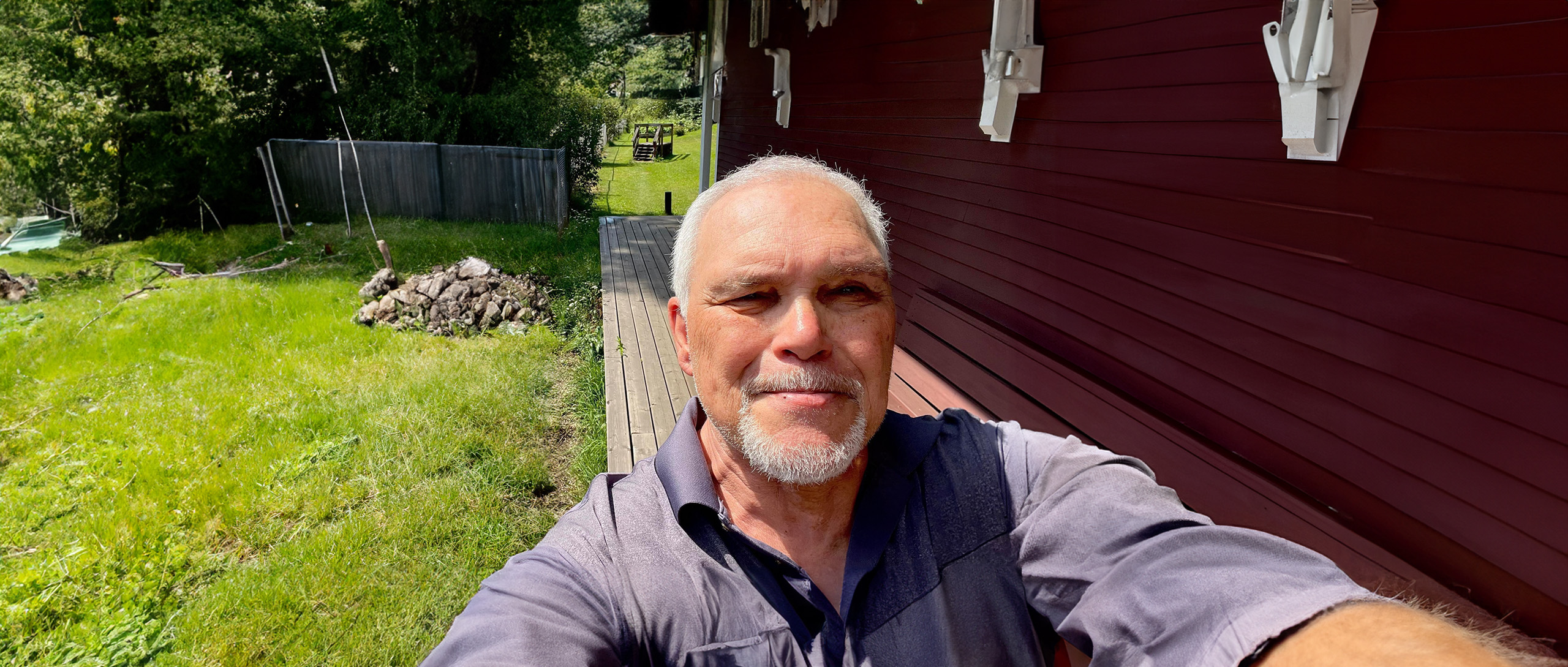When Bob Phillips was diagnosed with prostate cancer in 2018 at the age of 65, he wasn’t particularly surprised. Phillips had suffered from an enlarged prostate for decades — he first noticed pain and swelling in the area when he was working as a city bus driver in his early 20s. The diagnostic tests available at that time weren’t particularly effective, so Phillips went about raising a family and embracing his Métis culture through his work as an Indigenous liaison to the oil and gas industry and the provincial government.
The game changer for Phillips finally came in 2019. A painful growth on his prostate eventually landed him in the emergency room when he found himself unable to use the bathroom. Upon biopsy, Phillips learned he had a malignant tumour and was diagnosed with stage four prostate cancer, becoming one of the one in six Albertan men who develop prostate cancer in their lifetime.
“The biopsy procedure was done by Dr. Kawakami,” Phillips says, referring to the late Dr. Jun Kawakami of the Southern Alberta Institute of Urology and a much-valued member of the Prostate Cancer Centre (PCC) community, who passed away in 2021. “He called me two weeks later and told me I had cancer. It didn’t surprise me after all these years of having an enlarged prostate.”
Dr. Kawakami removed Phillips’s tumour via robotic surgery, but since the growth was fairly mature and the cancer had started to spread outside the prostate, it was only the first step in his treatment journey. Through the PCC, Phillips began taking hormone injections to reduce the androgens in his body and slow the development of cancer cells. For the past 18 months, he’s also participated in a clinical trial involving an androgen-blocking drug, also facilitated by the PCC.
While undergoing treatment, Phillips noticed that there weren’t many other Indigenous patients. As a proud Métis man and someone who spent his career working with Indigenous communities, he immediately understood the lack of Indigenous faces. Travelling to medical appointments can be a barrier for people living outside the city on reserve, and beyond that, conventional medicine is not always a path taken by Indigenous peoples. Phillips knows that many Indigenous peoples prefer to turn to traditional healing ceremonies in lieu of modern medical treatments. While Phillips recognizes the immeasurable value of these sacred practices, he wants to do his part in encouraging people to also put their trust in the medical system and seek conventional cancer treatment.
“I never saw one other Indigenous person taking cancer treatments in the three years I’ve been going through this,” he says. “My thoughts when it comes to Indigenous healings versus modern medicine is that if you’re an Indigenous person, you should consider using both of them.”
In addition to his continuing treatment, Phillips has dedicated his time to advocating for Indigenous people living with cancer. He’s spent much of the last two years working hard on a proposal to help raise awareness about the importance of treatment and testing for all kinds of cancer, while advocating for the development of more supports such as transportation, to ensure that Indigenous cancer patients are able to seek and commit to ongoing treatment. This is especially important as there is a higher incidence of prostate cancer among racialized individuals.
Meanwhile, Phillips’ cancer has metastasized to his bones. Still, he and his doctors believe the hormone injections and drug trial have extended his life significantly and are looking to try chemotherapy as the next phase of his treatment. While that causes obvious concern, Philips approaches his health with good humour and is grateful for the extra time treatment has given him. He sees himself as being in the “management” phase of his cancer, with time left to enjoy his retirement and continue his work on Indigenous cancer care.
“The whole idea is to prolong life. I have three little grandchildren and I’d like to be around longer to be part of their lives,” he says. “What I have to do is plan my time best according to what Creator gives me.”


